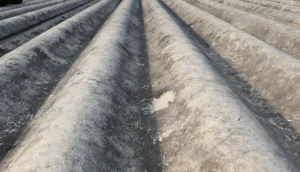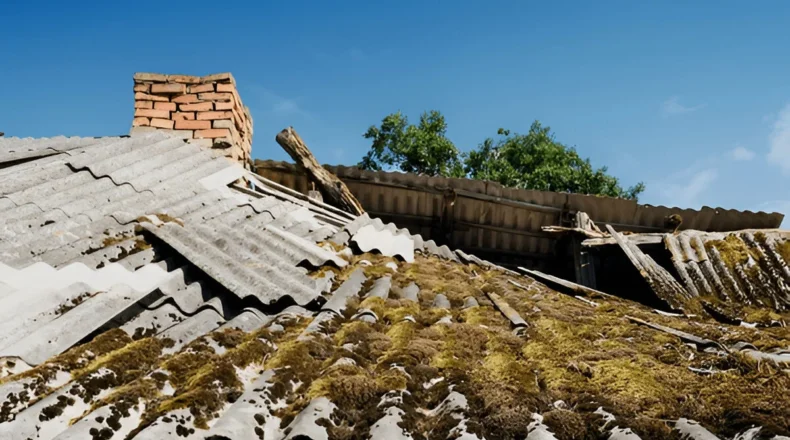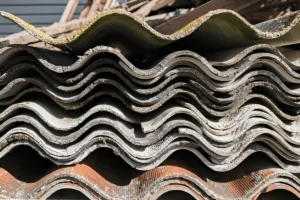How Asbestos Disposal Service calculates cost explained with factors, FAQs, and tips for safe handling of asbestos disposal.
Asbestos has long been recognized as a hazardous material. Once widely used in insulation, roofing, and flooring, it is now known to cause serious health problems when its fibers are released into the air. Because of these risks, proper removal and disposal of asbestos is both a legal and health requirement. But one of the most common questions people ask is: how is the asbestos disposal cost calculated?
This article explains the major factors that influence the overall cost and helps you understand what to expect when hiring a professional Asbestos Disposal Service in India.

Why asbestos disposal needs special handling
Unlike general waste, asbestos cannot be tossed into a landfill without care. It requires:
-
Trained professionals who understand the risks
-
Specialized protective equipment
-
Approved containment and transportation
-
Government-regulated disposal facilities
These requirements are exactly why the costs are structured differently compared to other forms of waste management.
Factors influencing asbestos disposal cost
When professionals calculate the price of asbestos disposal, they consider multiple aspects. Understanding these can help property owners plan ahead and avoid surprises.
1. Type of asbestos material
Not all asbestos is the same. For instance:
-
Friable asbestos (easily crumbled) is highly dangerous and requires extra precautions.
-
Non-friable asbestos (bound in solid material) is slightly safer but still hazardous when disturbed.
The more fragile the material, the higher the disposal cost.
2. Amount of asbestos to be removed
Disposal cost is often measured by volume or weight. Large quantities naturally increase costs because they require more containment materials, transport, and landfill space.
3. Location of the asbestos
The place where asbestos is located also matters:
-
Easily accessible areas (like garages or sheds) are cheaper.
-
Hard-to-reach areas (like ceilings, pipes, or underground) require specialized tools and more labor.
4. Transportation and disposal site distance
Asbestos cannot be dumped in any landfill; only certain facilities are licensed to accept it. If the site is far away, transportation costs increase significantly.
5. Labor and safety requirements
Professional workers undergo intensive training and use protective gear. Their labor charges reflect the risks they take and the expertise they bring to the project.
6. Packaging and containment materials
Asbestos waste must be sealed in approved bags or containers before transport. These materials add to the cost but ensure fibers do not escape into the air.
7. Legal compliance and permits
In India, certain states require permits before asbestos removal and disposal. The paperwork, inspection, and approvals may influence the final cost.
Typical cost breakdown in an asbestos project
A project may include:
-
Initial inspection and testing – to confirm asbestos presence.
-
Safe removal – carried out by licensed handlers.
-
Packaging and labeling – according to regulations.
-
Transportation – with a certified carrier.
-
Final disposal – at an authorized facility.
Each step adds to the final bill, and skipping any is not legally or ethically allowed.
Why professional services are essential
While some homeowners may think of DIY removal to save money, asbestos is not a material to experiment with. Professionals ensure:
-
Full compliance with environmental laws
-
Reduced risk of contamination
-
Insurance and liability coverage
-
Correct disposal that protects communities
This is where a trusted Asbestos Disposal Service becomes invaluable, offering safe and compliant solutions.
Smart ways to manage asbestos disposal cost
If you are planning for asbestos removal, consider these tips:
-
Get multiple estimates – Different providers may have slightly different pricing structures.
-
Combine projects – If you have other hazardous waste, disposing them together may save transportation charges.
-
Plan early – Last-minute removal under pressure can cost more.
-
Ask about recycling or reuse – While limited, some materials can be stabilized or repurposed safely.
FAQs on asbestos disposal cost
Q1. Can asbestos be disposed of with normal construction waste?
No. It must be handled through certified asbestos disposal facilities.
Q2. Is asbestos disposal more expensive in cities?
Often yes, because labor and permit costs tend to be higher in urban areas.
Q3. How long does asbestos removal and disposal take?
It depends on the quantity and location. Small projects may take a day, while large building clean-ups can take weeks.
Q4. Does insurance cover asbestos disposal?
Some policies may cover part of the cost, but many consider it the property owner’s responsibility.
Q5. Can asbestos be recycled instead of disposed?
In rare cases, advanced technologies can neutralize asbestos, but in India, disposal at authorized landfills remains the standard.
Final thoughts on asbestos disposal
Understanding the cost structure behind asbestos removal helps property owners make informed choices. It is not just a financial decision but an investment in health and safety. Professionals ensure compliance, protect families and workers, and prevent long-term environmental harm.
For anyone considering safe handling of this material, relying on an experienced Asbestos Disposal Service like Greenship Services ensures the entire process is completed responsibly and transparently.


